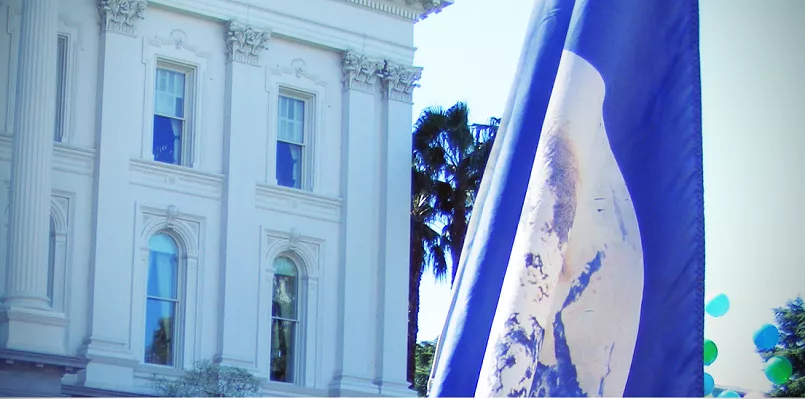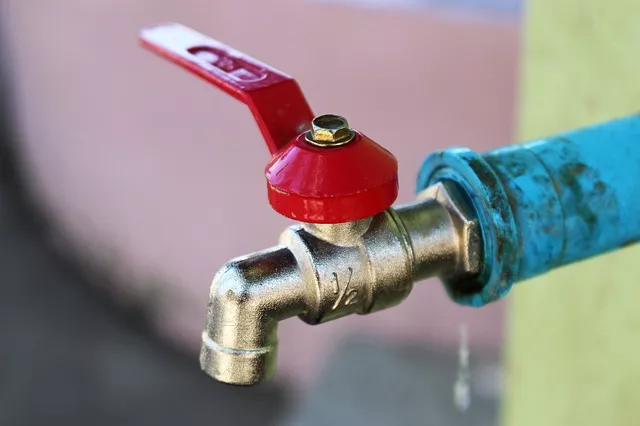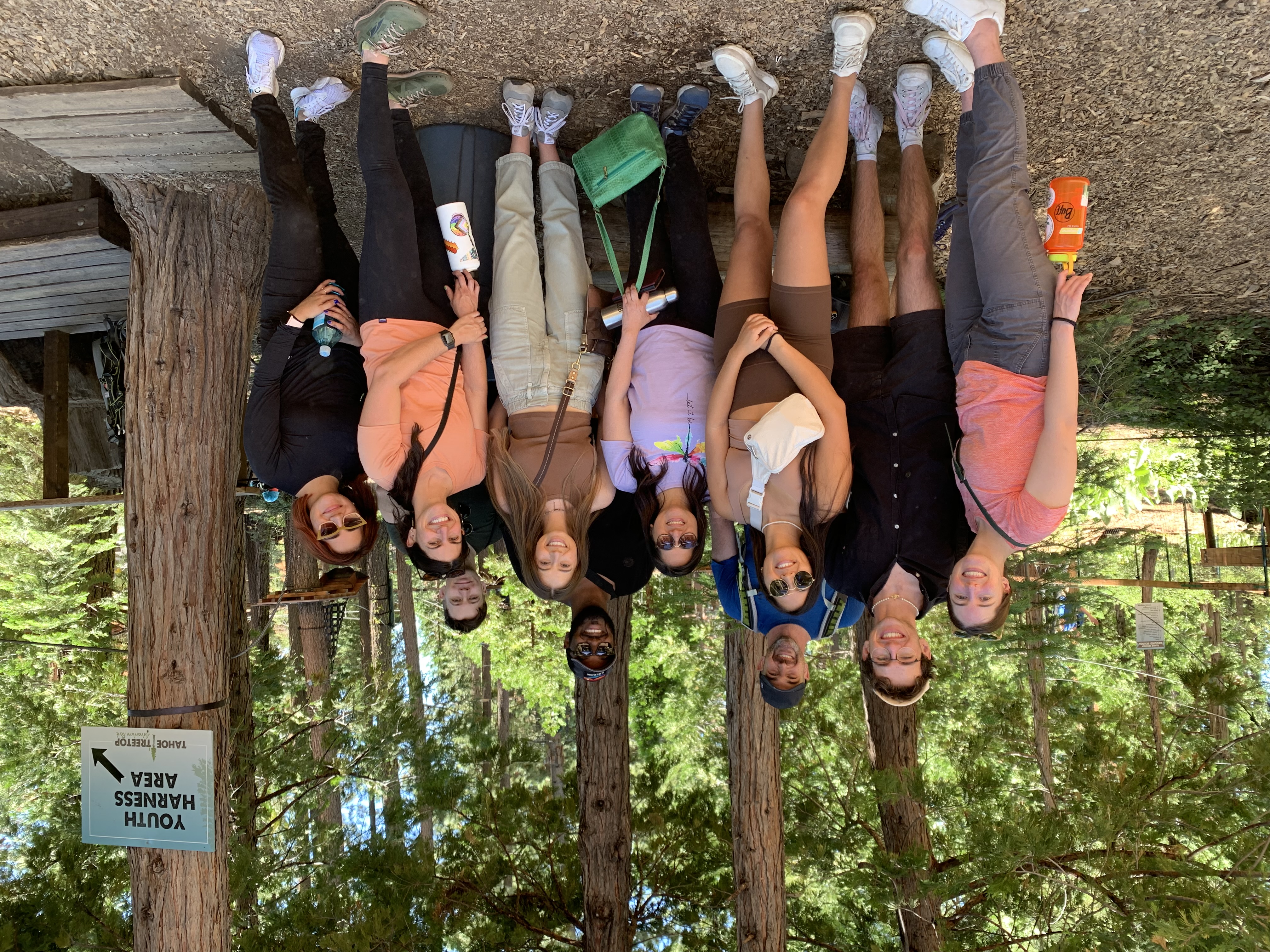
Final Countdown: Four Days Left to Pass Key Climate Legislation
Towards a Cleaner California Fuel Standard
The Latest in the Fight to Stop the Environmentally Destructive Sites Reservoir
We’re Hiring a New Water Associate Organizer!
By Erin Woolley and Gabriela Facio

September 14th marks the end of California’s Legislative Session for 2023. Legislators have until Thursday to pass bills through both the Senate and the Assembly, and then those bills will be sent to the Governor for final approval.
With only four days left before the deadline to pass bills through the legislature, the Capitol is bustling with legislators, lobbyists and members of the public working hard to see their legislative priorities pass - or fail - before Thursday’s deadline. We’ve seen oil and gas industry lobbyists working overtime to kill key environmental bills.
While some of Sierra Club California’s priority bills are already on the Governor’s desk, a number of them are still up for vote in the Legislature. We need your help to get these bills passed to protect clean air, hold polluters accountable, and increase public transparency about what’s in our environment. Do your part and continue calling your legislators today and tell them you support the following bills! If they’re an author or co-author of a bill, thank them for standing up for the environment.
SB 253 Increasing Corporate Transparency - Support
This bill would require publicly traded corporations with annual revenues in excess of $1 billion that do business in California to publicly disclose their greenhouse gas emissions from the prior calendar year. The bill would also require the Air Resources Board to develop and adopt regulations requiring those large corporations to set emissions targets based on the entity’s emissions.
SB 674 Monitoring Air Pollution in Environmental Justice Communities - Support
This bill would contribute to refinery-related emission reductions in environmental justice communities by requiring fenceline (perimeter) air quality monitoring for additional refinery-related operations and the installation of a refinery-related community air monitoring system near overburdened communities.
AB 1167 Making Dirty Polluters Pay their Fair Share - Support
This bill would address CA’s orphan well crisis by requiring operators that acquire the right to operate an oil well or production facility through purchase, transfer, or other disposition to cover the full remediation costs associated with plugging and abandonment and site restoration determined by the State Oil and Gas Supervisor.
SB 261 Disclosing Climate-Related Financial Risk - Support
This bill would help create a climate-resilient workforce and protect the state’s economy by mandating that corporations disclose climate-related financial risks associated with corporate operations, employee health and safety, capital investments, and supply chains.
AB 652 Environmental Justice Oversight of Pesticides - Support
This bill would require the Department of Pesticide Regulation (DPR) to establish a Department of Pesticide Regulation Environmental Justice Advisory Committee to increase transparency and accountability on ways to integrate environmental justice considerations for communities with the most significant exposure to pesticides.
AB 363 Addressing Pesticide Use - Support
This bill would expand upon existing agricultural regulations on the use of neonicotinoids, a class of insecticides, to prohibit their use, possession, and sale in outdoor, non-agricultural settings due to their harmful effects on pollinating insects, aquatic ecosystems, and human health, with the exception of state certified/licensed applicators.
Towards a Cleaner California Fuel Standard

Over the coming year, California’s Air Resources Board (CARB) will begin updating the Low Carbon Fuel Standard (LCFS) program. This is a unique opportunity to reduce transportation-related emissions and address air pollution. It’s critical that these updates include necessary changes to align with and support the goals that California has set for vehicle electrification and clean energy.
The LCFS program was approved by CARB in 2009, and began implementation in 2011. The program was identified by the AB 32 Scoping Plan as one of the key early measures needed to reduce California’s greenhouse gas (GHG) emissions.
LCFS holds enormous potential for reducing GHG emissions, smog, and toxic air pollutants resulting from fuel combustion. Along with California’s targets for electrification of light, medium, and heavy duty vehicles, the LCFS program represents a huge step forward in reducing the pollution that continues to impact California communities and worsen climate change.
Unfortunately, barriers remain to achieving LCFS’s full potential. Despite California’s commitment to electrified vehicles, more than $5.8 billion went towards biogas and biofuels between 2011 and 2022. The current crediting structure continues to subsidize these polluting fuels at such a high level because of a distorted carbon intensity for factory farm emissions.
The LCFS still remains a primarily combustion-oriented program. While lowering the carbon intensity of combustion fuels is important, California cannot succeed by continuing to prioritize the same fuels that harm our communities and environment. The LCFS program must stop excessively subsidizing combustion and other polluting fuels, and instead prioritize transportation solutions that are truly zero-emission.
To do this, the LCFS needs to eliminate the distorted crediting of methane from factory farms and cap the unrestricted use of crop biofuels. In their place, we must increase support for zero-emission vehicle priorities including electrified transit, school bus, and drayage truck fleets, as well as investment in electric vehicle infrastructure.
Sierra Club California staff, volunteers, and allies will be closely engaging with CARB as this process unfolds. We’ll be working to ensure that LCFS can reach its full potential, and help achieve California’s nation-leading climate and transportation goals. Keep an eye on your inbox for ways you can support this effort.
The Latest in the Fight to Stop the Environmentally Destructive Sites Reservoir
By Erin Woolley and Molly Culton

Late last month, Sierra Club California joined environmental, fishing, environmental justice, and Tribal groups to submit a protest petition against the proposed Sites Reservoir Project’s water rights application to the State Water Resources Control Board. The protest is part of an established process to ensure that public concerns are addressed before new water rights are approved. Once a protest is filed, the State Water Board will take actions to try to help the parties resolve the issues raised.
Sites Reservoir has been touted as a solution to California’s water woes, but building new dams and reservoirs to store water is an obsolete solution that is more likely to exacerbate harm than do good. According to a new report released by Patagonia and Friends of the River, construction and operation of Sites Reservoir would release 362,000 metric tons of CO2e per year- the equivalent of putting 80,653 gas vehicles on the road.
California’s water allocation and access inequities issues have only worsened as the state has struggled with multiple consecutive years of intense drought and severe flooding. While these weather patterns are not new to California, they have been amplified by climate change. These extreme weather events have drawn increased public attention to the need for California to grapple with its outdated water policies and infrastructure. It’s only become more important to ensure that Californians have access to clean, affordable, and reliable water supplies for decades to come.
Furthermore, the water that would be required to fill Sites Reservoir simply isn’t available. The project proposes construction and operation of a 1.5 million acre feet (MAF) capacity offstream water storage facility that would divert more water from the Sacramento River watershed. The Sacramento River is one of two rivers in California that terminates into the San Francisco Bay-Delta, the largest estuary on the West Coast.
The Bay-Delta region is a delicate ecosystem that depends on freshwater outflow from the Sacramento and San Joaquin Rivers to balance the saltwater inflows from the Pacific Ocean. For over a decade, the Water Board has been working to develop an updated Bay Delta Water Quality Control Plan to address the extensive harm that excessive water diversions have dealt to the estuary and imperiled species that depend on it.
Sites Reservoir proposes to drain even more water from that watershed, which threatens to push the Bay-Delta over the brink into ecological collapse. The project also comes with a price tag of over $4 Billion - some of which is being funded by taxpayers through the Proposition 1 WSIP program.
Sites Reservoir will only worsen our current water issues. There are available alternatives, laid out in our Protest, that will help California build resilient local water supplies while also ensuring water can remain in our rivers and help restore healthy ecosystems. Sierra Club California will keep fighting for these alternatives, and we’ll keep you posted on how you can support those crucial efforts.
We’re Hiring a New Water Associate Organizer!

Sierra Club California is hiring an Associate Organizer! Are you or someone you know passionate about protecting Californian’s water rights and preserving our ecosystems? Do you want to help shape California’s water future, while working with a dynamic and motivated team of Sierra Club California staff and volunteers? Then this is the position for you!
The Associate Organizer will be responsible for recruiting, engaging, and motivating volunteers and supporters to engage with Sierra Club California’s water and legislative campaigns.They’ll be working directly with our staff and members to fight for equitable water policies at the local and state level. This position plays a key role in supporting our robust and effective water campaigns to protect and restore aquatic ecosystems and advocate for water affordability and sustainability for California communities. This position will also help organize volunteers around the state to take action on our legislative campaigns!
Successful candidates will have experience in community organizing and building coalitions. They must be strategic and creative thinkers capable of working on a team with diverse staff, coalition partners, and volunteer leaders.
If that sounds like you, apply here and please share with your networks!
Follow Us:
  |
Thank you for being a part of our work! Consider making a monthly donation. You may securely donate online or by sending a check to Sierra Club California at 909 12th Street, Suite 202, Sacramento, CA 95814.
